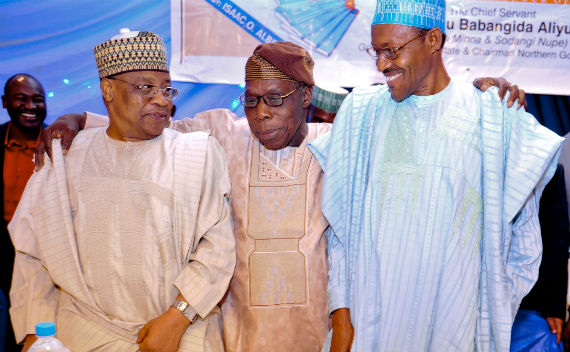Babangida, Obasanjo, and Nigerian Governance
More on:

The public feud between former heads of state Ibrahim Babangida (IBB) and Olusegun Obasanjo (OBJ) is an occasion to reflect on the high price the Nigeria has paid for poor governance.
The two have been military colleagues since the Biafra War (1967-1970) and are an integral part of the patron-client system that runs Nigeria. IBB was the military chief of state for eight years, while OBJ was the military chief of state for three years and then the nominally civilian elected president of Nigeria for an additional eight years. Within the Nigerian military, OBJ was senior to IBB, though both are four star retired generals. They are about the same age and both made their fortunes via the access that military power provides.
IBB used the occasion of his seventieth birthday to compare favorably his time in office to that of OBJ. More specifically, he said that OBJ had wasted some sixteen billion dollars on power projects. OBJ responded by calling IBB a fool, citing conflicting verses from proverbs about whether he should respond or not. (He chose to do so.)
IBB’s initial salvo surprised me because in the past he has said that public condemnation of a senior colleague violates good military discipline
Press commentators are having a field day, accusing both "big men" of pettiness, lack of decorum, and of suffering from an "embarrassing disdain for intellectual rigor." One observed that IBB and OBJ are "united in greed and personal aggrandizement," and noted that both are living in "opulence." Others have made the point that poor leadership and bad governance, of which both IBB and OBJ are guilty, are a direct cause of Nigeria’s failure to develop. Yet others are embarrassed for Nigeria by the public spat between "two old men."
Other than exposing two of Nigeria’s biggest "big men" as petty and lacking decorum, it is unclear whether there is a larger significance to the spat. Both IBB and OBJ still have links into the military. Both are immensely rich. Both fancy themselves as kingmakers. IBB was an active presidential candidate in 2011, and he may harbor resentments that he failed. OBJ remains president of the ruling PDP’s board of trustees. They are certainly yesterday’s men; the question is whether they think they have a future.
It is positive that the spat has led Nigerian commentators to acknowledge directly the country’s abysmal history of poor leadership and bad governance. Confrontation of that reality can only promote better governance in the future.
More on:
 Online Store
Online Store
